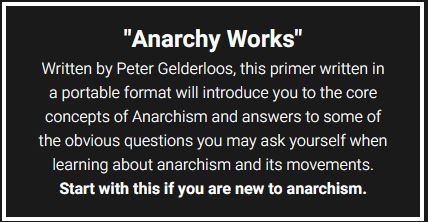#anarchist / socialist medicine
Explore tagged Tumblr posts
Text
yeah half of my blog is DIY healthcare because I can technically afford the monthly premiums but what am I getting? It's basically appendicitis / accident insurance, there's not much other value I see in western medicine. And if I do get appendicitis I'm headed to the Good Sam to plead a charity case, and if I get stuck with $80 k debt for appendicitis I'll just have to fight it. Paying the copays would probably be $20k anyway and premiums over the years, another $30k so what's a last $30k to bet I'll never need any of that bs?... I mean in Cuba they do this procedure for hundreds. I could fly NetJets to Mexico (and perhaps Mexico to Cuba) and get it done in either of those countries for a zero off the USA's cash price tag, but air ambulance Netjet with me inside dying of appendicitis doesn't sound too wise so medical tourism is still likely best left for preventative / elective procedures. (can I preventatively get my appendix removed lol)
But we have remedies to diseases capitalism can't crack because our remedies aren't constrained by the need to make a fascist-level-of-profit / monopolizer's-patent for big pharma.
Can we also unpack how Jonas Salk developed the polio vaccine for free and gave it away? Can we unpack the incentives for innovation at work there?
Why was Salk driven to innovate while going total George Washington mode on the victory lap, giving away his fascist prize to the public in exchange for immortality as a truly magnanimous man of the people.
Could it be?
More than just money incentivizes human beings to innovate in medicine?
Could it be, that perhaps more than money drives human action towards saving each other's very lives?
I definitely can't say this for a hospital, or a pharma corp, but I would cross the road to save your life. I would try, I would take a risk to do that, I wouldn't stick my hand out for a $100k of oncology bills like the hospital would, or they tell you to "i dunno i guess just go die of cancer ya brokeass" is what western medicine says. Even if you pay those bills, they won't cure you; you still hear from your provider who wears a pink ribbon "cancer is an incurable disease."
Then what are you researching? lmao
If western medicine is religiously committed to the idea that cancer is un-curable, why the pink ribbons?
Why flood the "awareness channels" with "awareness PSAs" for the most-well known disease on the planet? Could they possibly be doing that to hide something from the public / Google results?
Why do we spend a trillion a year on research for something for which we're religiously opposed to there being a cure?
Nothing adds up until you accept the truth seen by Rick Simpson et al, that western medicine can cure cancer easily they just can't patent that cure. That's the real problem, they can't MONOPOLIZE the many cures to cancer; they cannot control that capital as fascists so they deny that it could even exist as a possibility. Holy gaslights Batman!
[how the critics sound]No! Big⛽️💡 pharma billionaires would never ever ⛽️💡gaslight us! No! no ⛽️💡no no ⛽️💡no ⛽️💡no ⛽️💡no! I had a very charismatic chemistry professor in college and he said cancer has no cure and I believed him, he was so handsome! Science is never wrooooong raaaaaaaaaaa!!!!! I refuse to believe ⛽️💡Pfizer ⛽️💡would ever choose profit over saving lives! [/how the critics sound]

#anarchist / socialist medicine#manifestos to observe#RSO beats cancer#chanka piedra beats kidney stones#i tell this to my family and they are hardcore capitalists who igore me and laugh and get an $80k laser kidney stone removal annually#some would prefer kidney stones' pain than admit we're right#who am i to violate bodily autonomy i will not#you can lead a minotaur to water but you can't make they/them drink#the anarchist healthcare plan#anarchists can conquer and dominate all of medicine with these blueprints#do not constrain your anarchism to destructive behavior#please also know that anarchism can mean using herbal medicine to save lives and what happens next?#You've done a good thing and gained an ally for life in the process#Anarchist medicine as community organizing#who has cancer? who knows someone with cancer? Let's get them set up on the healing trajectory#2-4 months and a budget of $2-3k and you will be right as rain and cancer free#let your doctor observe and post the results of your labs#you will cure cancer with this info- RSO dropped in a capsule per dose
44K notes
·
View notes
Text
So She Lost
The 2024 election and how to make things better
We did our best folks, we voted. We canvassed and phone banked and fundraised and bullied the president into dropping out of the race. But we lost. We cannot change that, and the sooner you accept that then sooner you can begin to feel better.
Take a week, a month, till the inauguration, however long to come to terms with what happened. You're feeling grief and grief takes time to process.
But a lost election does not mean you will die.
Your life, if I had to guess, will become materially worse. If you're queer and in a red state start saving up. If you're trans get those name and gender changes in. If you're undocumented, or related to someone undocumented, get your shit gathered.
I can't guide you through everything but I can tell you now that your life is not over, and even if it will suck absolute shit, it will get better over time. You'll graduate, get a promotion, find a partner (or find some garlic bread if you're not into the whole relationship thing), see friends, watch movies, read books, watch a sunset. There will still be good things, and it is important that we appreciate these good things especially when things start to suck.
We can't make any calls on how bad the next four years will be but I can say this, fascist governments can't last forever. They're a fire that gets lit and burns itself out. Some fires are big and destroy a lot of things, sometimes they can be contained, sometimes they burn longer than you'd like.
But they do burn out, especially when people contain it and help control it.
Find local organizations that advocate for the one thing you care most about. Trans rights, abortion, Gaza, homelessness. Go to join them, work with them, and recruit for them.
If you can't find these orgs, get a friend and do it yourself. If you can't find a friend, make one. Do not ever think you are helpless, you are a member of your community and with enough work you can work to change it. Even if no one listens to you, you are there making a statement and that means that you are not silent.
As online as I am I think I'm going to wane off it. It does nothing for me, outside of wasting my time and laugh at funny jpegs. It's important that we remember that the Internet is not real life, as much as it may seem.
Also, and I don't care if you're an anarchist, socialist, communist, third worldist, neo-Trotskyite. You're a bleeding heart liberal now. Keep your social positions, but leftism can't get done now. You love Joe Biden, you loved Hillary, you were ok with Bernie. Work within this framework until it becomes politically viable to do anything else.
Sleep, we all need it, and drink water. Take your medicine if you have any. Maybe go for a walk in the morning. You're not screwed yet, make the most of it
#self help#cope#election 2024#politics#2024#us elections#us politics#usa#america#trans rights#leftism#progressive#liberal
85 notes
·
View notes
Note
It's never too late. We are beginning to think about how and why we exploit animals, and how it is not morally consistent with our values; several prominent anarchists and communist bloggers on Tumblr have admitted that veganism is ethically and financially superior on every level, though they don't participate in it, which is sad. All it takes is a little extra work. The collapse of capitalism will also bring the collapse of the animal industry, or vice versa. The meat plants subjugate both humans and animals, causing persistent trauma- in fact, it has the highest rate of trauma among every category of labor. If you support abolition, you should support all abolition: children, psych people, and animals. On a site like Tumblr, we have an opportunity to promote the breakdown of all positions of power. We are all equal.
Honey, you have the wrong fucking blog to the extent that I can only assume you are spamming this message to everyone you think might listen. I have gone on the record several times to say:
I am a pragmatic empiricist. I care much less about ideological consistency than I do about observed outcomes. There are traps there, too—sometimes people get too much into the weeds about observing proxies for desired goals—but essentially I do think that careful observation of the world around me is much more valuable than starting with a consistent ideology and assuming that good intentions will yield good outcomes.
I am motivated by animal welfare. For me, part of that involves meeting animals on their own level, using their own species-specific signals to assess stress and comfort, and understanding animals within their own social context. Therefore,
I am opposed to animal rights narratives that encourage people to project their own imagined emotional responses onto animals without assessing the animals' actual signals in context. Additionally,
I believe as a behavioral ecologist that, for good and for ill, humans are essentially animals participating in a broader ecosystem that includes us. I do not think humans are special or exist outside that broader web, and I think that ecological intervention works most effectively when we see ourselves as part of nature rather than as some kind of twisted unnatural personification of original sin. Conflict and death are part of life. You won't make a better world by pretending otherwise.
I am a disabled person ("psych people?!"), and more specifically an autistic and neurodivergent person. I literally spelled out for you last night that I have difficulties eating and that imposing more barriers to that ("a little extra work") is a significant burden for me. Your easy dismissal of this point is, in context, amazingly and blithely ableist. Wow.
"psych people?!" I am happy to critique coercive psychiatry and medicine more generally, but that one's new on me. If you're not brave enough to use the language of mad/crip pride, are you entirely sure you understand the points of the dialogue? Your demonstrated grasp of disability justice is already extremely poor; this ain't helping.
I am not anti-state (i.e. I am not an anarchist; I am a democratic socialist) and I routinely criticize daydreams about burning entire systems to the ground and replacing them with a vague new system. Those criticisms are usually based in historical analysis of attempts to do exactly that, which have typically resulted in a lot of bloodshed, generally from the most vulnerable people in society. They also often yield a new and not necessarily more egalitarian power structure that continues to oppress people, sometimes more aggressively than the institution preceding it.
For the same reason, I am not a communist. I think communism offers too many opportunities for unscrupulous people to seize power, creating more inequality under the banner of equality itself. Again, this position comes from reading the history of communist states from as many perspectives as I can get my mitts on.
I frequently critique assumptions that capitalism is the only root of social problems. This does not mean that I am pro-capitalism. It means that I think you have to think deeply about problems, especially when it makes you uncomfortable, to understand how to solve them. Many problems that capitalism exacerbates are actually rooted in problems about impulse control (as with Ideas Jerry the other day), basic human social dynamics, emotional regulation, complex traumas, and many other things. You must understand how these problems arise before you can construct a structure that guards against them effectively.
Fundamentally, I think you are probably optimistically spamming this message to anyone that you think will listen. I invite you to consider how effective that is as a tactic to advance your politics: when you pick the wrong person, at best you leave the impression that people serving your ideology are essentially self centered and bad at listening. At worst, you wind up pissing people off enough to sit down and lay out exactly how many points they disagree with you on. Coalitions of solidarity are based on listening carefully to one another and finding the places we agree on; shit like that is antithetical to building them because it sends a very effective signal that you are either very, very bad at listening or uninterested in doing so.
Either way, get out of my house.
110 notes
·
View notes
Text
AI Is Inherently Counterrevolutionary
You've probably heard some arguments against AI. While there are fields where it has amazing applications (i.e. medicine), the introduction of language generative AI models has sparked a wave of fear and backlash. Much has been said about the ethics, impact on learning, and creative limits of ChatGPT and similar. But I go further: ChatGPT is counterrevolutionary and inherently, inescapably anti-socialist, anti-communist, and incompatible with all types of leftist thought and practice. In this essay I will...
...
Dammit im just going to write the whole essay cause this shit is vital
3 Reasons Leftists Should Not Use AI
1. It is a statistics machine
Imagine you have a friend who only ever tells you what they think you want to hear. How quickly would that be frustrating? And how could you possibly rely on them to tell you the truth?
Now, imagine a machine that uses statistica to predict what someone like you probably wants to hear. That's ChatGPT. It doesnt think, it runs stats on the most likely outcome. This is why it cant really be creative. All it can do is regurgitate the most likely response to your input.
There's a big difference between that statistical prediction and answering a question. For AI, it doesnt matter what's true, only what's likely.
Why does that matter if you're a leftist? Well, a lot of praxis is actually not doing what is most likely. Enacting real change requires imagination and working toward things that havent been done before.
Not only that, but so much of being a communist or anarchist or anti-capitalist relies on being able to get accurate information, especially on topics flooded with propaganda. ChatGPT cannot be relied on to give accurate information in these areas. This only worsens the polarized information divide.
2. It reinforces the status quo
So if ChatGPT tells you what you're most likely to want to hear, that means it's generally pulling from what it has been trained to label as "average". We're seen how AI models can be influenced by the racism and sexism of their training data, but it goes further than that.
AI models are also given a model of what is "normal" that is biased towards their programmers/data sets. ChatGPT is trained to mark neoliberal capitalism as normal. That makes ChatGPT itself at odds with an anti-capitalist perspective. This kind of AI cannot help but incorporate not just racism, sexism, homophobia, etc but its creators' bias towards capitalist imperialism.
3. It's inescapably expoitative
There's no way around it. ChatGPT was trained on and regurgitates the unpaid, uncredited labor of millions. Full stop.
This kind of AI has taken the labor of millions of people without permission or compensation to use in perpetuity.
That's not even to mention how much electricity, water, and other resources are required to run the servers for AI--it requires orders of magnitude more computing power than a typical search engine.
When you use ChatGPT, you are benefitting from the unpaid labor of others. To get a statistical prediction of what you want to hear regardless of truth. A prediction that reinforces capitalism, white supremacy, patriarchy, imperialism, and all the things we are fighting against.
Can you see how this makes using AI incompatible with leftism?
(And please, I am begging you. Do not use ChatGPT to summarize leftist theory for you. Do not use it to learn about activism. Please. There are so many other resources out there and groups of real people to organize with.)
I'm serious. Dont use AI. Not for work or school. Not for fun. Not for creativity. Not for internet clout. If you believe in the ideas I've mentioned here or anything adjacent to such, using AI is a contradiction to everything you stand for.
#ai#chatgpt#anti capitalism#anti ai#socialism#communism#leftism#leftist#praxis#activism#in this essay i will#artificial intelligence#hot take#i hate capitalism#fuck ai
36 notes
·
View notes
Text
So there's one big question nagging at me throughout my foray into leftist theory, and it's one of the big things holding me back from actually being an anarchist—medicine. As a chronically ill woman who needs specialized anti-inflammatory and immunosuppressant medication to digest food painlessly, have any energy, and keep my colorectal cancer risk down, the only concrete answer I've been able to find is herbalism—which, lol no I'm not treating my Crohn's with tumeric when evidence-based medicine exists.
I'm genuinely curious, so if you're an anarchist, please let me know if you have non-anprim answers to these questions and further reading (or if you're a Marxist, because honestly you guys are voices of reason sometimes), and keep in mind that you are not convincing someone who thinks capitalism holds the answers, but someone who thinks that regulatory bodies and a socialist state hold the answers.
In an anarchist, decentralized, stateless society:
How can I guarantee that the doctor mixing my infusion and the nurse administering it are qualified to do so?
How can I guarantee that the specialized antibodies going into my body are the correct ones at the correct concentration, without contamination by other medications or harmful pathogens?
How can I guarantee that the other medications I receive during treatment (Tylenol, Benadryl, and Solu-Medrol) contain the correct compounds at the correct concentrations, without contamination?
How can I guarantee that the IV pump infusing me at a constant rate is manufactured correctly in a clean environment and is still operational when I'm attached to it?
How can I guarantee that the gloves, gauze, alcohol swabs, etc. used by the nurse are manufactured correctly in a clean and sterile environment?
How can I guarantee that the bag and tubing holding my infusion is manufactured correctly in a clean and sterile environment?
How can I guarantee that the needle and catheter going into my body are manufactured correctly in a clean and sterile environment?
If I do develop a site infection, how can I guarantee that any antibiotics I take are the correct ones at the correct dosage, matched correctly to my specific infection at the right length to fight it without breeding resistance?
How do we source the metals, plastic, fibers, rubber, glass, and organic compounds needed along these steps in an ethical way? If it's impossible for some more complicated aspects such as pump machines, how do we ensure I nevertheless get infused at the right rate that isn't too quickly?
I haven't even brought up blood pressure cuffs or pulse oximeters, nor discussed other areas of treatment such as colonoscopies and the web of steps contained therein (prep medications that work without contamination, sedation medications that work without killing, a larger qualified staff of doctors and nurses before, during, and after the procedure, the scope and biopsy tools being made correctly), but suffice it to say, I have the same questions there.
#yael.text#anarchism#like i know there are disabled anarchists but i just don't know if that can be me
4 notes
·
View notes
Text
"Thus many collectives did not compete with each other for profits, as surpluses were pooled and distributed on a wider basis than the individual collective.
This process went on in many different unions and collectives and, unsurprisingly, the forms of co-ordination agreed to lead to different forms of organisation in different areas and industries, as would be expected in a free society. However, the two most important forms can be termed syndicalisation and confederationalism (we will ignore the forms created by the collectivisation decree as these were not created by the workers themselves).
Syndicalisation (our term) meant that the CNT’s industrial union ran the whole industry. This solution was tried by the woodworkers’ union after extensive debate. One section of the union, “dominated by the FAI, maintained that anarchist self-management meant that the workers should set up and operate autonomous centres of production so as to avoid the threat of bureaucratisation.” However, those in favour of syndicalisation won the day and production was organised in the hands of the union, with administration posts and delegate meetings elected by the rank and file. However, the “major failure … (and which supported the original anarchist objection) was that the union became like a large firm” and its “structure grew increasingly rigid.” [Ronald Fraser, Blood of Spain, p. 222] According to one militant, “From the outside it began to look like an American or German trust” and the workers found it difficult to secure any changes and “felt they weren’t particularly involved in decision making.” [quoted by Fraser, Op. Cit., p. 222 and p. 223] However, this did not stop workers re-electing almost all posts at the first Annual General Assembly.
In the end, the major difference between the union-run industry and a capitalist firm organisationally appeared to be that workers could vote for (and recall) the industry management at relatively regular General Assembly meetings. While a vast improvement on capitalism, it is hardly the best example of participatory self-management in action.
(...)
The other important form of co-operation was what we will term confederalisation. This system was based on horizontal links between workplaces (via the CNT union) and allowed a maximum of self-management and mutual aid. This form of co-operation was practised by the Badalona textile industry (and had been defeated in the woodworkers’ union). It was based upon each workplace being run by its elected management, selling its own production, getting its own orders and receiving the proceeds. However, “everything each mill did was reported to the union which charted progress and kept statistics. If the union felt that a particular factory was not acting in the best interests of the collectivised industry as a whole, the enterprise was informed and asked to change course.”
This system ensured that the “dangers of the big ‘union trust’ as of the atomised collective were avoided.” [Fraser, Op. Cit., p. 229] According to one militant, the union “acted more as a socialist control of collectivised industry than as a direct hierarchised executive.” The federation of collectives created “the first social security system in Spain” (which included retirement pay, free medicines, sick and maternity pay) and a compensation fund was organised “to permit the economically weaker collectives to pay their workers, the amount each collective contributed being in direct proportion to the number of workers employed.” [quoted by Fraser, Op. Cit., p. 229]
As can be seen, the industrial collectives co-ordinated their activity in many ways, with varying degrees of success."
I.8.4 How were the Spanish industrial collectives co-ordinated?
6 notes
·
View notes
Text
I really think it’s important to reiterate how much of anarchist politics basically boils down to People Are Nice. Like so many appeals to a nebulous human nature, so many assertions that people will be good to one another when the structures of capital or the state are dissolved, all of it is reliant on people in need being dependent on the good will of their peers, which is not a coherent vision for the future! What happens when a tall trans woman who hasn’t shaved needs help from TME people? When a black man isn’t perfectly polite? When a disabled person snaps because their pain makes them irritable? And this is to say nothing of the giant elephant in the bathtub: how the fuck will you make insulin? HRT? Vaccines? Anti-venoms? Painkillers? Wheelchairs? Fuck how will people get water with no structures to organize its refinement and distribution?
When looking at existing socialist projects these are all questions that have been answered! The state enforces order on these things, it organizes the manufacture and distribution, and very importantly the standards, of medicine and machinery, it organizes the support networks and housing programs and builds power plants and funds research into improvements on all these things!
Fundamentally Marxist Leninism is not concerned with things like “good will” or “human nature” it is instead concerned with classes acting in their own self interests, and how the state is a tool used by a ruling class to enforce its will! And when the proletariat has taken control and built its own state, it will enforce the will of the people, which is always in their own self interest! It will not matter if a person in need is friendly or approachable or has done anything wrong!
5 notes
·
View notes
Note
or yr medicine could be produced by a strong socialist state. just a thought
I mean sure, and Jesus Christ himself could show up at my door and ask to blow me tomorrow. I'm not in the mood to get into an argument about which theoretical left wing political system would be better for people in the US right now. Suffice to say my disagreements with socialism/communism are largely around the failure to address the entrenchment of unnecessary and corruptive hierarchical systems within government itself. I read Capital, there's solid analysis of the mechanics of capitalist economics but I don't really trust Marx's historical perspective on revolution considering how much of it is based on using Native American culture as analog for "primitive communism" which is a flawed and eurocentric methodology. Marxist ideas around the dictatorship of the proletariat also bother me because the foundational assumption is that people are not capable of self governance and the dictatorship is necessary to prepare them for a stateless communism that itself basically resembles anarchism. The idea that somehow taking away people's self determination and ability to self govern will eventually lead to them being better at practicing that same self determination and self governance is a kind of silly and backwards concept. Anarchist praxis centering around harm reduction and working towards mutual aid in the moment outside of the broken systems that exist more closely aligns with my own values than waiting for a glorious socialist revolution.
#maybe im giving you too much credit thinking you're an actual Marxist saying this shit#and not just some socdem who thinks socialism is any time the government does something
8 notes
·
View notes
Text

Chapter 3. Economy
Meeting our needs without keeping count
Capitalism has produced some amazing gadgets, but the military and the police are almost always the first to use new technologies, and often the wealthiest people are the only ones who benefit from them. Capitalism has produced undreamed of wealth, but it is hoarded by parasites who did not produce it and who lord over the slaves and wage laborers who created it. Competition may seem to be a useful principle for encouraging efficiency — but efficiency for what purpose? Beneath the mythology it has created, capitalism is not actually a competitive system. Workers are divided and played against each other, while the elite cooperate to maintain their subjection. The wealthy may compete for bigger slices of the pie, but they regularly take up arms together to ensure that every day the pie is baked and brought to their table. When capitalism was still a new phenomenon, one could describe it more honestly, without being confused by decades of propaganda about its supposed virtues: Abraham Lincoln, hardly an anarchist, could see clearly enough that “capitalists generally act harmoniously and in concert to fleece the people.”
Capitalism has failed horribly at meeting people’s needs and arranging a fair distribution of goods. Throughout the world, millions die from treatable diseases because they cannot afford the medicine that would save them, and people starve to death while their countries export cash crops. Under capitalism, everything is for sale — culture is a commodity that can be manipulated to sell lingerie or skin cream, nature is a resource to be sucked dry and destroyed for profit. People must sell their time and energy to the owning class in order to buy back a fraction of what they produce. This is a deeply rooted system that shapes our values and relationships and defies most attempts to abolish it. The socialist revolutions in the USSR and China did not go deep enough: as they never fully abolished capitalism, it reemerged, stronger than before. Many anarchist attempts have not gone deep enough either; capitalism may well have resurfaced in these experiments if hostile governments had not crushed them first.
Power and alienation must be pursued to their roots. It is not enough for the workers to own their factories collectively if they are controlled by managers and the work still reduces them to machines. Alienation is not simply the absence of legal ownership of the means and fruits of production — it is the lack of control over one’s relationship with the world. Worker ownership of a factory is meaningless if it is still administered by others on their behalf. The workers must organize themselves and control the factory directly. And even if they control the factory directly, alienation persists where the broader economic relationships, the factory itself, dictates the form their labor takes. Can a person truly be free working on an assembly line, denied creativity and treated as a machine? The form of work itself must change, so that people can pursue the skills and activities that give them joy.
The separation of work from other human activities is one of the roots of alienation. Production itself becomes a sort of obsession that justifies exploiting people or destroying the environment for the sake of efficiency. If we view happiness as a human need no less than food and clothing, then the division between productive and nonproductive activity, between work and play, melts away. The squatting movement in Barcelona and the gift economies of many indigenous societies provide examples of the blurring of work and play.
In a free society, exchange is simply a symbolic assurance that everyone is contributing to the common resources — people don’t hoard resources or take advantage of others, because they have to give in order to receive. But exchange can present problems by attaching a quantitative value to every object and experience, thus stripping them of their subjective value.
Where once an ice cream cone was worth a delicious ten minutes of finger licking goodness in the sun, and a book was worth several afternoons of enjoyment and reflection and possibly even life-changing insight, after these goods are assessed according to the regime of exchange, an ice cream cone is worth a fourth of a book. Further into this process, to make the exchanges more efficient, while consequently fixing the quantitative value as inherent rather than comparative, an ice cream cone is worth one unit of currency and a book four units of currency. The monetary value replaces the subjective value of the object — the pleasure people find in it. On one hand, people and their desires are taken out of the equation, while on the other hand all values — pleasure, usefulness, inspiration — are absorbed into a quantitative value, and money itself becomes a symbol for all these other values.
In effect, possessing money comes to symbolize having access to enjoyment or the fulfillment of a desire; but money, by affixing a quantitative value, robs objects of the sense of fulfillment they might bring, because humans cannot experience quantitative, abstract value. In eating an ice cream cone, the pleasure is in the act — but in buying a commodity, the pleasure is in the purchase, in the magical moment that an abstract value is transformed into a tangible possession. Money exerts such a powerful influence on notions of value that consumption itself is always anticlimactic: once the commodity is purchased, it loses its value, especially as people come to prioritize abstract value over subjective value. Furthermore, having purchased it, you lose money, and your total holdings of symbolic value decrease — hence the nagging feeling of guilt that accompanies spending money.
In addition to alienation, exchange creates power-over: if one person accumulates more quantitative value, they have accrued the right to a greater portion of the community’s resources. Systems of exchange and currency, like the barter network in Argentina or the coupon system for purchasing goods in parts of anarchist Spain, rely on customs and social arrangements to prevent the reemergence of capitalism. For example, a gift economy could function at a local level, with exchange used only for regional trade. People could deliberately set up work environments that encourage personal development, creativity, fun, and self-organization, while decentralized federations of such workplaces could award one another with coupons for the goods they produce so each person has access to the wealth created by all.
But it is a worthwhile challenge to do away with exchange and currency altogether. Within free stores or Freecycle, the symbolic assurance provided by exchange or barter is unnecessary. The assurance that everyone will contribute to the common wealth springs from the culture of the spaces themselves. As a participant, you express the desire to give and to receive, and your inclusion in the social space increases as you carry out both of these activities. In such contexts, giving pleases a person just as much as receiving.
The world is bountiful enough to provide for everyone’s needs. Scarcity is a dangerous illusion that functions as a self-fulfilling prophesy. Once people stop giving and begin hoarding, collective wealth declines. If we overcome the fear of scarcity, scarcity itself disappears. Common resources will be bountiful if everyone shares and contributes, or even if most people do. People like to be active, to create and improve things. If people are ensured access to common resources and spared the poverty of wage slavery, they will create plenty of the things they need and that give them pleasure, as well as the infrastructure required to make and distribute these things.
#anti colonialism#anarchism#daily posts#communism#anti capitalist#anti capitalism#late stage capitalism#anarchy#anarchists#libraries#leftism#social issues#economy#economics#climate change#anarchy works
4 notes
·
View notes
Text
Hey folks!
Just saying that Brazil is the first country to be accepting LGBTQ refugees from any country that criminalize our lives. Yes, this include USA.
This was announced yesterday (may 19).
So... We are here with open arms. This is not an easy country for a lot of things, but we have:
Universal public health
General practitioner, vaccines, AIDS treatment, most common medicines are free or cheap, specialists, dental treatment... Including gender affirming care - there are queues, but it exist.
We have one of the world best dentistry.
Its still starting, but a lot of cities already have veterinary public health, or subsided vets to at least spay/neuter your pets.
Birthing is complicated in general, but there are some free options that are really good.
We don't have an opium crisis and our government break patents of medicines when needed. Insulin is free in the public health system. Condoms too.
Abortion is a current fighting matter.
Public education and universities
Public schools are everywhere. And every school will grant you and kids the basic things like notebooks, pencils, pens, etc, and books. Every school have a library or reading room, the government send new fiction books to schools.
Food is free in public schools, and in the majority of the places, good food. Even if most schools have the kids for 4 or 5 hours, not the entire day, there will be free lunch.
Our educational system is universal, so by law, every child and teen must be studying, disabled kids included.
If you cannot pass the tests for a public college, there are paid colleges you can go with government subsidy, and no one left college with an absurd debt. I mean, really. There are special credit lines to grant that. And the prejudice against community colleges is minimal. Its absolutely common that people work at day and go to college in the night shift.
Black and indigenous people have further affirmative policies to go and stay at college.
Unions and workers rights
Our president used to be an union leader. Even with the recent shit show (we had our own trump/jonhson like asshole) , unions are very present and we have LAWS that protect workers. Including 30 days of paid vacation every year, paid weekend, 50% extra payment for working more than 8 hours day or Sundays, 30% more per hour worked at night, social security services, paid health leave, and retirement.
We have a lot of shit going on in work environment, but unions grant lawyers to help, and everything in our work conditions is better than in USA.
Leftist parties and an almost fair voting system.
Almost because Im an anarchist so, every voting system to me is flawed as fuck BUT how far a voting system can go, Brazilians have the best option.
We have a lot of parties, both left and right. You dont have only two options. We have not one, but two communist party. Our socialist party have a huge queer presence. The presidency now is at the Workers Party hands, a left-centered bunch. I think they are not left enough, but our left center party is still much more to the left than any american party.
Our democracy is direct, every vote have the same value, there are not delegates and caucus and such stuff. Every adult need to vote, so your work cannot stop you from voting. There is one election day, its a holiday because everybody votes in the same day, from 8 am to 6 pm. Since the system is electronic, the same night we have the results.
Also, States are not independent to decide most of things. The laws are federal, so there's a consistency in rights and such things.
The greatest variety of foods
And even if inflation because our last government is still a thing, so food right now is not exactly cheap, we don't have food shortages.
There are no food deserts. Fresh food is easily available, and our climate is good to grow food at home.
In general, Brazilians have much more healthier food accessible than USAians.
And in big cities we have government programs and the MST (our Liga campesina) to help.
Guns are mostly illegal
Yes, thats what you read. We have huge gun control.
There are no school shootings. We had a few school incidents (big part of it with mellee weapons and not guns) by alt right men, but every single one was treated as a national tragedy and there's a real effort so that it don't happen again. In 20 years, we didn't had the amount of shootings that happens in a week in the USA.
Federal investigations of hate groups are happening constantly.
I could go on and on. And yes, we have problems, as any other country. But if you have the chance, come. We have our xenophobes, but mostly is a country that receive well the refugees. We have several organizations that help people to get on their feet. Caritas have even Portuguese classes specially developed for refugees.
There is racism, a lot, but it's very different than in USA, so it will take sone time to figure out wtf.
And we have A LOT of affirmative actions for minorities. We have a strong and huge queer community (better saying, various huge queer communities).
São Paulo Pride parade receives more than 1 million people.
And 1 dolar = 4 or 5 reais. Even if you don't have much money, this will make easier to you start a new life here.
#lgbtqiia+#lgbtq issues#LGBTQ#refugees#Brazil#Please come to Brazil#I want my brothers and sisters alive
4 notes
·
View notes
Text
The ultimate effect of this ideology is the same as the libertarians who want to abolish fire safety codes and medical licenses - if any ramp could be a 'shitty but better than nothing' ramp, disabled people are either going to get seriously injured and die, or be forced to stay inside.
The choice is not between 'unsafe shitty ramps' and 'no ramps', it's between 'unsafe shitty ramps' and 'safe, well-inspected ramps' under a system that doesn't value an arbitrary concept of 'authority' more than it values the actual lives of disabled people. Socialist societies have already had over a century of experience in producing medicines, running hopsitals, and, yes, constructing ramps, whereas the anarchist proposal (whose only attempts have collapsed within remarkably short periods) cannot even provide a theoretical method by which the safety and lives of disabled people could be ensured.
If your pitch is 'under the best possible execution of our plan, where we aren't under any external pressures, every ramp you take could collapse underneath you, and every insulin shot you take could be poison', I hope you can understand why there's a lack of appeal. Ultimately, I do not care at all about the metaphysical level of 'authority' that exists within a system - I care if it improves or worsens the lives of people under it. You cannot in good faith claim that removing building codes enforcement for wheelchair ramps would improve the lives of disabled people.


7K notes
·
View notes
Text
Sometimes thinking about my own inner world is fun because it's like oh how do yall solve this problem?
The people on the main continent we have connections to are socialist and anarchists. *kind* of. You actually dig into the meat of how things have stayed running for approximately 150 years down there, and there definitely is a government of sorts. Each city-territory has a council of people rotating every six months. It's like jury duty, once you're a legal adult you will very likely be called to serve as a councilor. The councils are massive, and scale by population--the biggest city has 200 councilors at any given time, while the smallest has about 30 or so. They have established groups that keep track of things like housing and food demand, allocating resources if there isn't an agreement on where those resources should be spent, and keeping track of projects pertaining to the public's interests. There are secretaries who parse data for the interest in question, and what we might call 'government officials' to contact when you're in need of resources you can't find yourself--the council then judges broadly based on need.
Which is to say, the councils need a list of people in the city to allocate food distribution, and a list of occupied and unoccupied residences or businesses in order to distribute them according to greatest need. People get what they require--medicine, food, housing, healthcare--but when there are shortages of these things sometimes you don't get exactly what you wanted. If you're a single person looking to move into your own home, you are more likely to be allocated a studio apartment than a multi-room flat which would be reserved for a family--unless you can find someone willing to give you their space. At that point it's up to the person that was occupying the unit in the first place.
Oh, and like. The city-territories aren't self-sufficient so there's a need for inter-city communication as far as trade between each other. That's a pretty big one that can't just be handled by an individual citizen.
1 note
·
View note
Note
Hey I’m not a hater (figured I would start with that because you seem to get a lot of idiots responding to you) I was wondering what the difference between anarchist communism and Marxist communism were. I’m very new to communist stuff and I get the difference would be one has no government and the other does but I am confused about the other differences? I hope this makes sense and I figured I ask around communists on their views on things. Also do you recommend any resources (for newbies) I could read? I’ve read the communist manifesto before.
Well the Communist Manifesto was a good place to start, but believe it or not, if you really want good summarization of Marxism, look no further than Stalin. Stalin's The Foundations of Leninism is a great place to start. I found no one is better at summarizing the ideas of Marx, Engels and Lenin into easily digestible novella size booklets than Joseph Stalin. Lenin's books are fantastic as well, though usually far more detailed than Stalin's works.
The essential difference between Anarcho-Communism/Syndicalism and Marxism/Marxism Leninism is that Marx, Engels and later Lenin, Stalin and others looked at revolutions, uprisings and revolts throughout history, and they came to the conclusion that a strong, centralized govt is essential to preserving a Socialist revolution. One cannot look at revolutions in history and not come to same conclusion.
It's really very simple, revolutions where the revolutionaries didn't immediately consolidate political power, seize the institutions of government, find allies, and immediately form a strong standing Military always fail. Whereas revolutions where the revolutionaries did manage to do all these things, were much more likely to succeed.
And it's not just in areas of govt or military that Marxists apply this way of thinking, they apply it to literally everything. That's what Historical Materialism is all about, applying the lessons of history along with the material conditions of society as they actually exist, to form a scientifically minded revolutionary Socialist movement that can, not only topple Capitalist governments, but replace them with a Socialist govt with the strength, will and power to survive and hopefully to thrive.
Of course, in practice, even armed with Historical Materialism and the lessons of history, actually surviving and thriving has incredibly difficult because in practice, the Imperialist powers undermine Socialist govts in every way possible. From dropping anti-communist propaganda over Socialist territory, to funding NGOs and News organizations to pump out anti-communist propaganda along with lies about the govt and Right-wing and Nationalist rhetoric onto Socialist airwaves and into Socialist academia, to funding Far-Right nationalists to attack the Communist govt and it's projects, to assassinations, threats, bribery, and blackmail of public officials in Socialist countries, and to even more horrendous crimes like sabotage of public infrastructure, and embargos preventing socialist countries from importing food, medicine and construction materials. Even forcing some Socialist countries like Cuba to go five decades with crumbing infrastructure, not because they don't invest in their country, but because the US blackmails the whole world into respecting their embargo on exporting goods to Cuba. For an island nation, an embargo is literally just a slow death without some kind of intervention by bigger, more powerful Socialist countries like China or (in the past) the Soviet Union.
So even a cursory look at the history of Imperialist Anti-Communism, it becomes painfully obvious to anyone but a lunatic that having a revolution, smashing the institutions of govt, and eliminating all hierarchies would immediately run into real world problems even if we excluded the threat posed by Western Imperialist powers. You would still be faced with issues like how to take the Private Property of the Bourgeoisie, how to seize the means of production and how to destroy the Bourgeoisie's monopoly of mass violence without the backing of any formal institutions of your own. And then, should you somehow succeed, what exactly do you do when the Bourgeoisie return to take it all back wielding the institutions of the Military and Security State?
Then when you've miraculously defeated all the obstacles to establishing this Anarcho-Communist region, the fact remains that the transnational elites and the Bourgeoisie of neighboring countries will ALL have an interest in defeating the new revolution. Neighboring Capitalist countries will immediately see an opportunity to seize land and resources for themselves, and their own Bourgeois classes will of course fear the spread of hope after a revolution. That hope, as they well know, can be a powerful motivator to other revolutionary movements and they will not hesitate to come up with an excuse to invade. And even if they didn't, the Western Imperialist powers will, just as they did after the Bolshevik revolution.
All of the evidence is overwhelming and Marxism, in particular Marxism Leninism, teaches us not to fantasize about utopias that will never happen, and instead focus our energy on changing the material conditions of workers. It's more than just an ideology, because it doesn't teach you to blindly accept their view without critical thinking. It teaches you to look at the history and material conditions you find yourself in and apply those lessons to deepen your political economic understanding of the world, and to use that understanding to build a Socialism that actually works, functions, survives and thrives.
And unfortunately, we do live in a world where any nascent Socialist revolution is nearly certain to come under relentless attack by foreign Capitalist govts, spy agencies, Corporate NGOs, nevermind an international economic, monetary and trade system designed to instantly strangle any country straying away from the Neoliberal consensus.
Marxism takes this lump of shit and tries to build Socialism within the constraints of the world we actually live in. It's not always pretty, it's not perfect, but it's the best alternative we got because it's actually grounded in reality. And actually look at the conditions of, for example, the Soviet Union, where the average citizen ate as many calories as the average American, where by 1985 they had had 45 years of 0 inflation, where food, healthcare and housing were rights, Unions retained the right to recall managers and block firings, workers had an average of 20 days paid vacation as well as sick days and paid leave, and a job was guaranteed right. These are NOT small victories for workers, and the Capitalist powers have made sure these facts aren't common knowledge.
Basically Marxism Leninism runs from a premise of an imperfect world, and says okay, let's build the essentials first, let's get our society defended from attack, let's bring order to the streets, let's build a political system more accountable to workers than managers, let's not give the enemies of Socialism a platform to espouse Anti-Communism to the Workers, let's invest in massive infrastructure projects, so we can form a foundation from which we can build our socialism, let's ensure our political system can no longer be coopted by the rich, let's build national healthcare, education and higher education, let's have land reform and forced cooperativization so corporations can no longer starve us by strangling the food supply, let's have massive investment in housing, education and Healthcare so the people are NEVER homeless, sickly or hungry again.
All these things take decades, billions and billions in investments, a slow cultivation of Socialist institutions, and above all else, it takes a strong State to defend the Proletarian Revolution from the greedy Capitalists within and the enemies without. Hierarchy to some degree will be necessary to ensure quick political responses to crises and defense of the revolution.
But the real end goal of Marxists and Anarchists are the same, the elimination of predatory hierarchies, inequality and the destruction of any institutions which retain the ability to produce illegitimate violence or coercive power on a massive scale.
But Marxists see this as a project and a process. The "withering away of the State" is seen as a byproduct of a healthy Socialist society which will occur over time as a Socialist State transitions into a Communist one and as coercive institutions become unnecessary to produce communal results and behaviors in the public.
Marxists see Communism as the goal, and a strong Socialist State as the vehicle to drive us there.
Anyway, I hope this helps. I'm terrible at explaining theory and have much much more to learn myself.
#good question#marx#frederick engels#lenin#karl marx#socialism#marxism leninism#socialist politics#communism#socialist#communist#marxism#marxist leninist
34 notes
·
View notes
Text
Work abolition isn't about not doing any labor? It's about not working paid jobs to make more profits for someone else
see that's interesting, because this whole debate has centered around anticiv and antiwork anarchists accusing marxists and other socialists of wanting "forced labor", even though marxists, obviously, do not want people who work to be making more profit for someone else. so this isn't about the "more profit for someone else" part, both marxists and anticiv/antiwork anarchists are in agreement on that. so it centers instead on the fact that marxists want workers to be paid or otherwise rewarded for their work. so let's just get straight what this is actually about.
For thousands of years we have banded together in smaller groups that take care of each other (yes even disabled people) these groups make sure everyone has food, shelter, water, and medicine,
not only have people been doing this for "thousands of years" they're also doing it right now, in the shadow of capitalism- people who have fallen through the cracks of capitalism can and do band together, share their resources, work to support and care for each other, and so on. people who haven't fallen through the cracks of capitalism also can and do use their free time to support and care for the people who have, donate money or spend their time at soup kitchens, and so on.
and we can see, as a result of this, that these kinds of informal networks of mutual support are completely inadequate for consistently making sure everyone has food, shelter, water, medicine, etc. despite the best efforts of many good samaritans, trying to survive while relying on voluntary mutual aid is a punishingly horrible experience. the human tendency to care for and support other people without expecting anything in return, while it does exist, is already not enough to support the people who are in need right now. if there were enough people who wanted to make bathtub insulin or eyeglasses or wheelchairs or pacemakers for free and hand them out as a hobby to meet everyone's needs, there would already be enough people doing that, right now, to meet the needs of the people who can't afford them (which is only a portion of the total number of people who need them). since this isn't happening we can draw some conclusions.
if i want to experience life free from paid labor, living off of a combination of mutual aid and self-subsistence, i can already do that right now by simply getting fired from my job, rejected from welfare and then couch-surfing for as long as i can before i end up homeless and have to forage and beg to stay alive. not only is this not a desirable situation to be in but it's so punishingly awful that both sides of this debate agree that capitalism using the threat of this as a punishment is inhumane and cruel.
and the part about couch surfing brings me to another point: voluntary mutual aid networks are not free from gatekeeping. people in those sorts of networks can, and do, gatekeep those resources all the time, sometimes for cruel or petty or false reasons. if someone spreads false rumors that someone is faking their disability, how might that affect their gofundme? when people are wrongly gatekept from resources by a mutual aid network, what are the mechanisms for accountability? the end of institutionalized forms of support instead of volunteer-based mutual support doesn't end gatekeeping, it just makes it much harder to keep gatekeepers accountable. which is part of the point i was making with my hypothetical, the inability of the antiwork framework to even say definitively that someone is in the wrong when mutual aid networks fail, let alone actually hold anyone accountable.
Everyone you argue with still wants social obligations,
oh is that so.

But does the possibility of any pain and suffering really turn you against changing this current system of guarantied pain and suffering?
no it makes me want to replace the current system with one which result in less suffering, not more.
absolutely fucking unreal to respond to the hypothetical of "if a disabled person needs care, and doesn't receive it, and dies as a result, do you agree that this is wrong" with "what if the world was made of pudding" what kind of fucking fantasy land do they live in where that's an impossible or even implausible scenario
717 notes
·
View notes
Text
Les Amis Appearance/Headcanon Masterpost
Julien Enjolras (he/him)

Chinese, 6’, dyed blonde hair. Very dark eyes. A good speaker. Wears a red jean jacket studded with pins proclaiming allegiance to various causes. Studying political science. Hard anarcho-communist. Aromantic and asexual.
.
Alexander Combeferre (he/they)

Black, 6’2 (tallest of the ABC), kinky hair styled in a fade. Has silver square-shaped glasses. Wears lots of sweater vests. Studying medicine. Very studious and philosophical. Democratic socialist. Gay. Does not like to be called Alex.
.
Felix Courfeyrac (he/him)

Latino trans man, 5’5, dark brown hair often dyed purple. Dresses fashionably. On the chubby side. Studying general education to become an elementary school teacher. Very outgoing, the life of the party. Anarcho-communist. Pansexual.
.
Jean "Jehan" Prouvaire (they/them)

Black with long red hair and freckles, 5’9. Dresses badly on purpose. Loves poetry and gothic literature. Is majoring in English with a minor in Medieval History. Light brown eyes. Green anarchist and staunch environmentalist. Shy until you get to know them. Nonbinary.
.
Lee Bahorel (he/she/they)

Black, 6’1 (AND A HALF!!!!), wears hair in braids. Wears lots of T-shirts with funny slogans. Does martial arts and boxes. Working in construction, college wasn’t for him. Anarchist (she believes the communist part should go without saying). Uses any pronouns, queer.
.
Connor Feuilly (he/him)

White (mostly Irish), 5’8, red hair slightly darker than Prouvaire’s, lots of freckles. Leaning towards Trotskyism. Works two jobs and does freelance art on the side. Brought up in the foster system. Aromantic but not asexual, he and Bahorel are friends with benefits. Passionate about education.
.
Michael Joly (he/him)

Korean, 5’4, has a disability from a broken leg that healed wrong; uses a cane. Wears a mask when out in public. Hypochondriac. Studying medicine. Marxist-Leninist in favor of the dissolution of the state, staunchly anti-Stalin. Bisexual. He and Enjolras have good debates. Wears glasses.
.
Amir "Bossuet" Lesgle: (he/they)

Half-Black, half-Iranian, 5’8. Has bad luck. Studying (“studying”) law. Pansexual and in a poly relationship with Joly and Musichetta. Generic leftist who doesn’t want to put himself in ideological boxes. Bald. Pun master (hence the nickname).
.
Rene Grantaire (he/him)

White (only Actually French ABC member), 5’6. Dark curly hair, messy stubble. Talented artist. Says he doesn’t believe in anything but actually cares about his friends. A bisexual pining mess. Denies having any interest in politics. Art student. Smokes too much.
.
Eponine Thenardier (she/her)

Half-white, half-Chinese. 5’3. Long black hair. Collects knives. Bisexual. Claims not to care about politics (is lying). In a poly relationship with Cosette and Marius. Older sister to Gavroche and Azelma. Studying journalism on a scholarship.
.
Marius Pontmercy (he/him)

White, 5’11. Messy brown hair and freckles. Studying law. Was raised conservative, became a classic liberal, eventually turned to democratic socialism under Courf’s influence. The only straight member of the ABC, but in a poly relationship.
.
Cosette Fauchelevent (she/her)

White, 5’7. Brown-blonde hair. Very kind. Bisexual trans woman. Catholic. Democratic socialist. Studying fashion design. Spent about a year with the Thenardiers before being adopted by Valjean. Is trying to reconnect with her birth mom.
.
Musichetta Anikapati (she/her)

South Asian, 5’5. Pansexual. Going to community college and working at the Musain. Anarcha-feminist who destroys transphobes with facts and logic.
.
Montparnasse (he/him)

Vietnamese, 5'5. Trans man. Looks like a Hot Topic exploded in his vicinity. Shoplifts for fun. Leftist in denial who hates cops. Was involved in gang stuff until he met Jehan and decided to turn his life around. God protect you if you use his last name.
.
Gavroche Thenardier (he/him)

White, 4'10 and growing fast. Shaggy blonde hair. Fifth grader. Eponine's half brother. Rare political kid, baby anarchist. Courfeyrac, Grantaire, and Bahorel are his other older sibling figures.
.
BONUS:
Azelma Thenardier (she/her): Half Chinese, half white. Seventh grader, 5'2 and still growing a bit. Eponine's full sister. Too focused on homework and hot girls to care about the political world.
Monique Grantaire (she/her): White, redhead, sixth grader. About 5'2-5'3. Grantaire's younger sister. Takes after her older brother in her enjoyment of art.
16 notes
·
View notes
Text
digsdigsdigs
not totally sure what is going on with this but i do think part of it is that a trait that is heavily favored in long term online Dee ess aye participation is "loving to respond to new information by taking the large rocks u keep in ur head and trying to smash the information until it doesn't exist any more"
Like REALLY loving it. Living for the possibility that your special rock you kept warm in your head will be the rock with which you obliterate the possibility of you entertaining even for a moment a thought that makes you doubt yourself
Yes, I think this is precisely right. I would add, I guess, that none of this cohort is working with particularly good rocks to begin with, and almost all of them seem to have brought to the table with them pro life organizing rocks from previous lifestyles. I want to dig up something I said to a comrade (controversial but I think generally equipped with good rocks) after he (not normally on the side of these people) took the “abortionists are anarchist” bait and did/said things I thought were horrifying and brutalizing (including listing abortion fund providers by name to call them out as like, antileft/collaborationist, on a day when abortion providers i know were dealing with irl bomb/whatever threats no less). what i said was, actually I can’t find it, but I’ll paraphrase and elaborate, because I deliver this one to socialists a lot. as a historian, I’ve found myself drawn to trying to capture a clearer understanding and analysis of abortion in the past (say) 50 years, because it is transparently true that it is a unique social production that does not fit cleanly into our schema for understanding eg state power. to me as a marxist that’s an opportunity to understand power better, not a door closing, etc. & i guess looking at this now, the rocks we have in our hand are: “big state subsidized medicine good. if a doctor does it it is ‘organizable’ as ‘healthcare.’” (obviously i don’t have good feelings about this but my positions are at least sometimes fairly described as “anarchist”). then there is “anything people are doing scaled down from the big state is anarchist.” there is a rock here to which i am very attached as a thinker--the rock that says, since, let’s say 1973 for no reason, the state has deconstructed itself to make possibilities less organizable, and it materialized “communities” in place of the organizable. even though that’s a rock i love, it’s obvious that abortion challenges its applicability--it does not invalidate it, but it complicates it. this is why i like to know about abortion, because it breaks open our categories so we can see if they are working, how and when etc. but then other people also have these related rocks: “critique of ngo” (baffling call is coming from inside the house behavior but i will table that), in which because we understand that abortion work is outside of the state, it must be “ngo work” and therefore--unorganizable, our enemy, ummm perhaps wreckers and so on. but of course we know that “abortion workers” are not that per se (if at all). and in any case the missing rocks here, well, there is the big one, “reproductive labor at all,” but particularly the historical shifting of its edges (formal and informal). coincidentally that rock is the hugest rock of any rock at all if your gravity is “the working class” but--well, god forbid.
19 notes
·
View notes